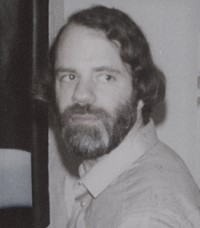[The following is an excerpt from Kripke’s Naming an Necessity (1972). Minor grammatical edits have been made to the original, with a focus on clarity.]
Above I said that the Frege-Russell view–that names are introduced by description–could be taken either as a theory of the meaning of names or merely as a theory of their reference. Let me give an example not involving what would be called a ‘proper name’ to stipulate this. Suppose someone states that 100 degrees centigrade is the temperature at which water boils at sea level. Of course, historically, a more precise definition was given later, but let’s suppose that this were the definition.
Another sort of example in the literature is that one meter is of a certain length S where S is a certain stick or bar in Paris.
Wittgenstein says something very puzzling about this. He says:
There is one thing of which one can say neither that it is one meter long nor that it is not one meter long, and that is the standard meter in Paris. But, this is of course not to ascribe any extraordinary property to it, but only to mark its peculiar role in the language game of measuring with a meter rule.
This seems to be a very extraordinary property, actually, for any stick to have. If the stick is a stick, for example, 39.37 inches long (I assume we have some different standard for inches), why isn’t it one meter long? Anyway, lets just assume that it is a meter long, either way.
Part of the problem which is bothering Wittgenstein is, of course, that this stick serves as a standard of length and so we can’t attribute length to it. Be this as it may (or may not) be, is the statement ‘S is one meter long,’ a necessary truth? Of course, its length might vary in time. Someone who thinks that everything one knows a priori is necessary might think: ‘This is the definition of a meter: By definition, stick S is one meter long at t0. That’s a necessary truth.’ But, there seems to me to be no reason to conclude this, even for a man who uses the stated definition of ‘one meter.’ For, he’s not using this definition to ‘give the meaning’ of what he called ‘a meter,’ but to ‘fix the reference.’
There is a certain length which he wants to mark out. He marks it out by an accidental property, namely, that there is a stick of that length. Someone else might mark out the same reference by another accidental property.
But, in any case, even though he uses this to fix the reference of his standard of length, a meter, he can still say: ‘If heat had been applied to stick S at t0, then at t0 stick S would not have been one meter long.’
